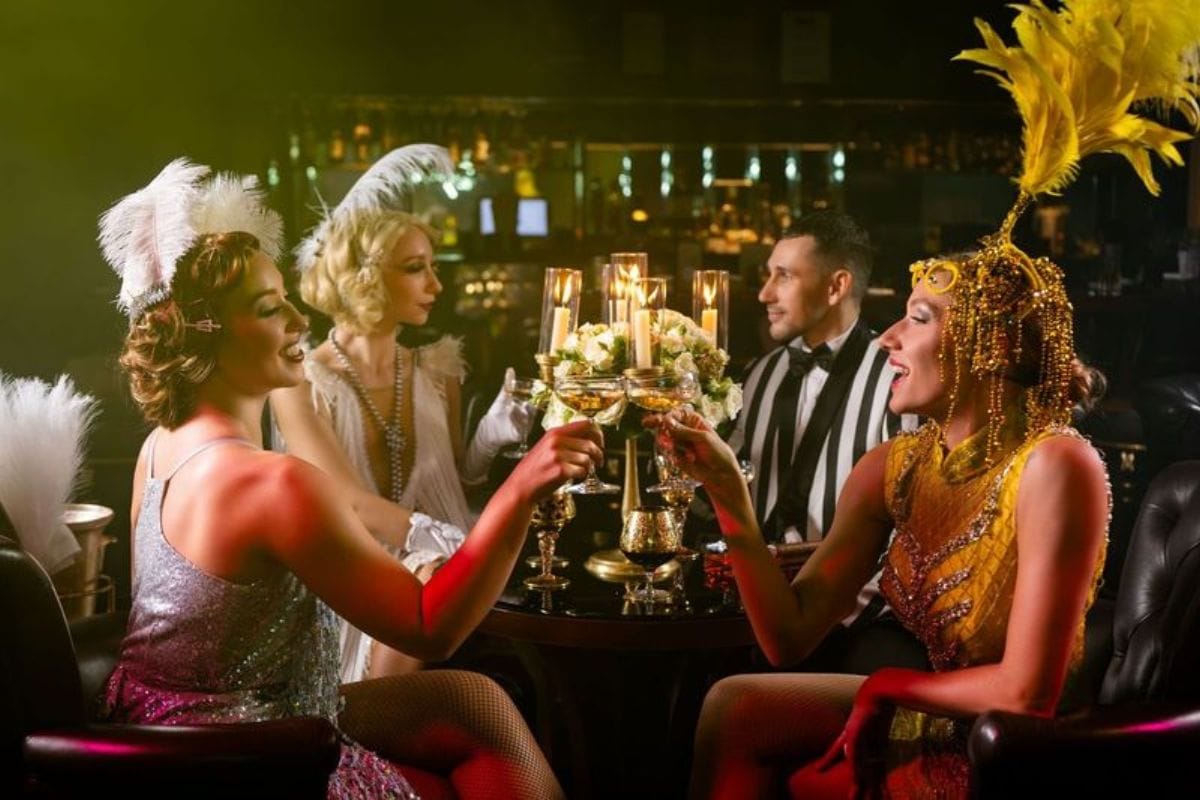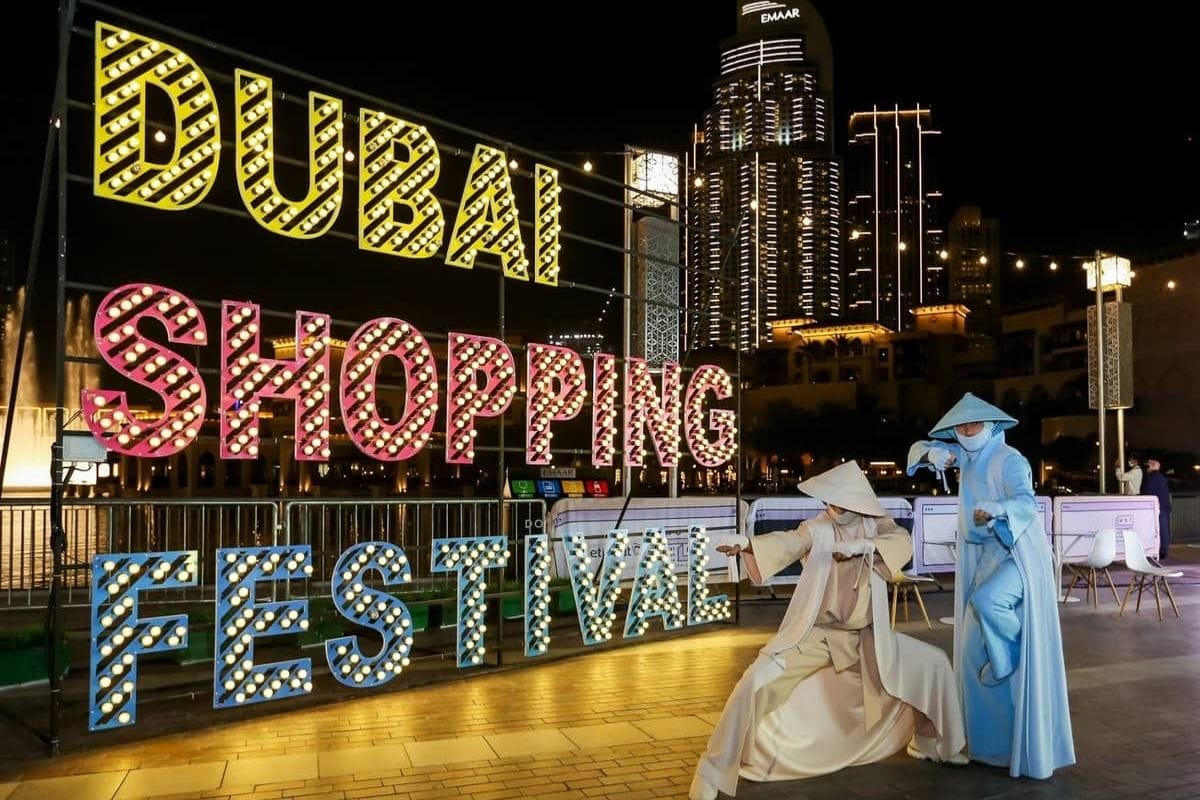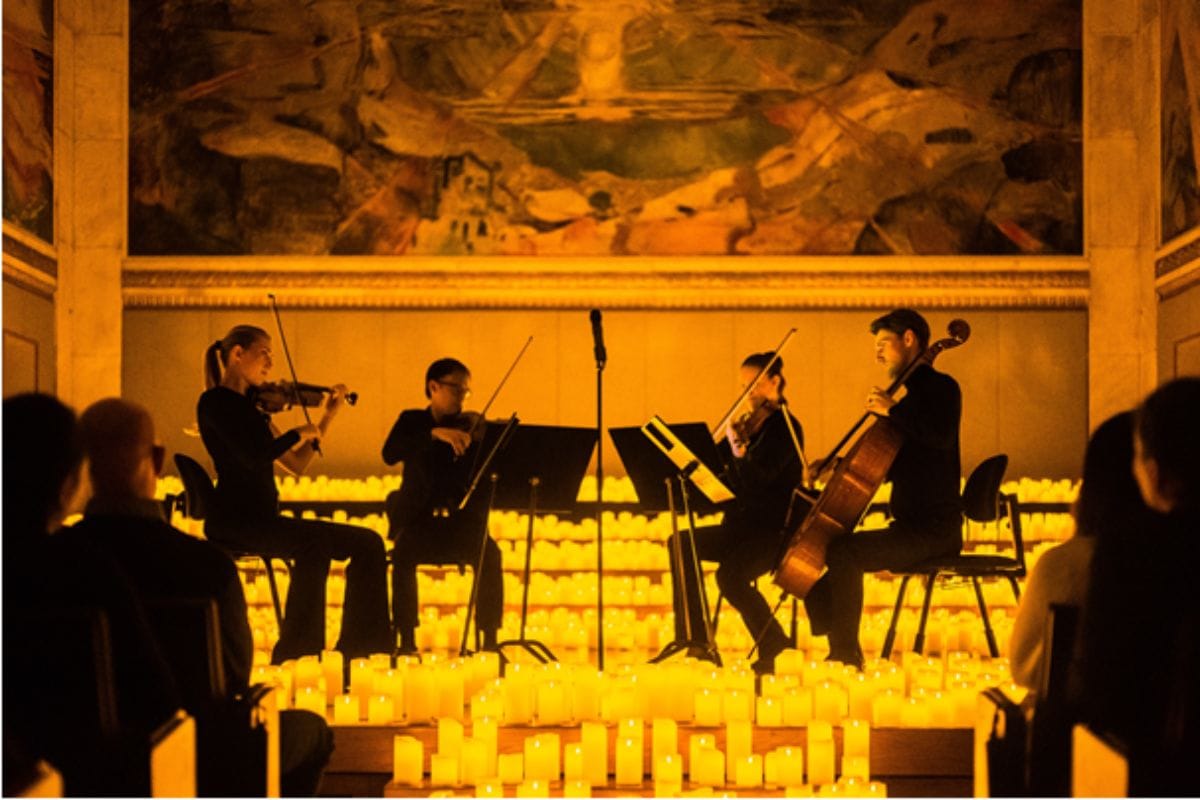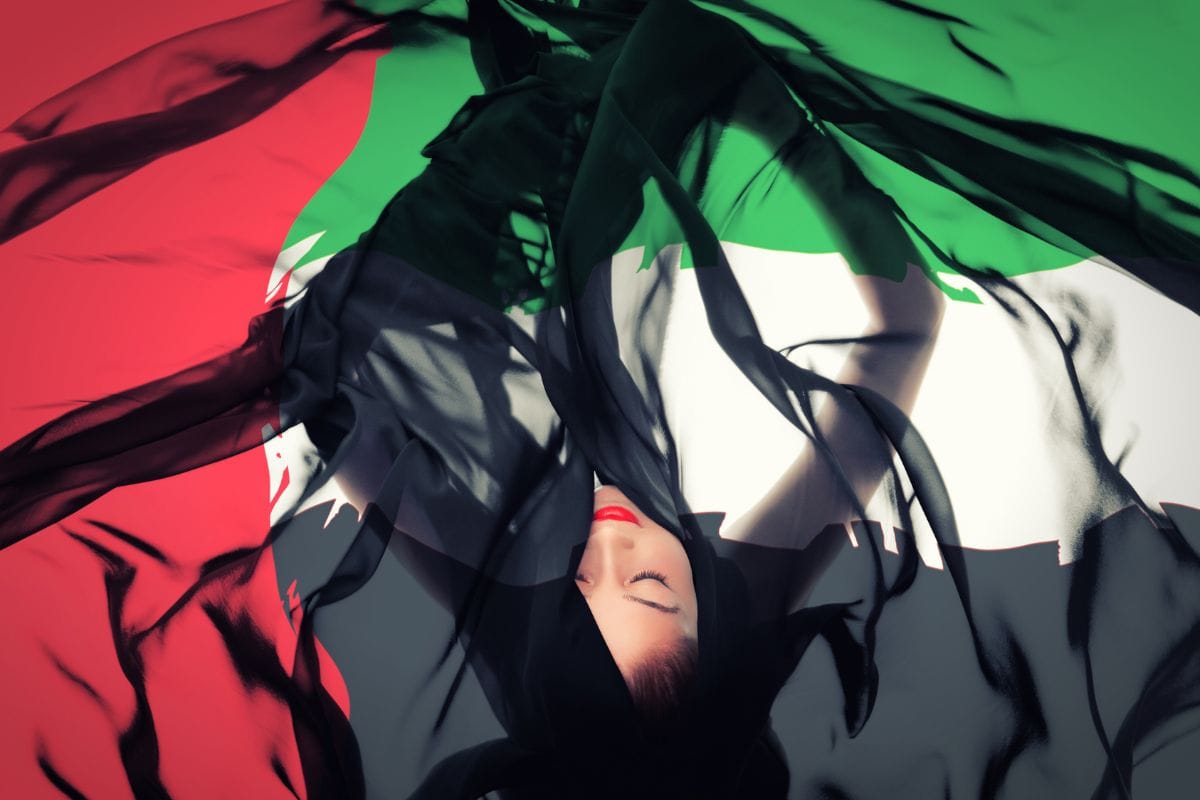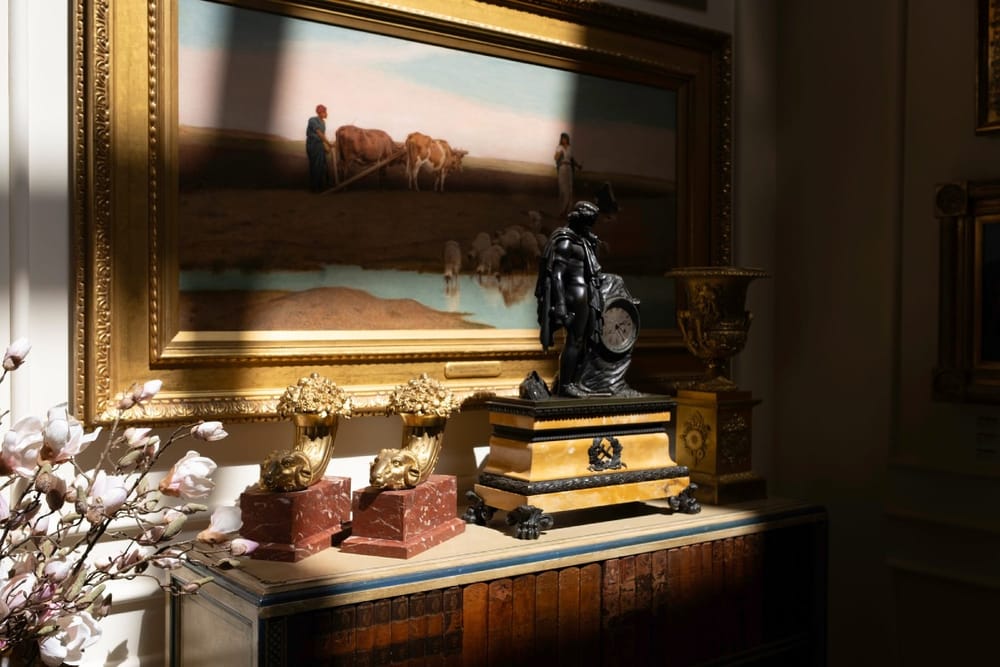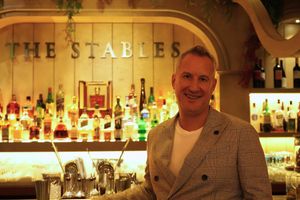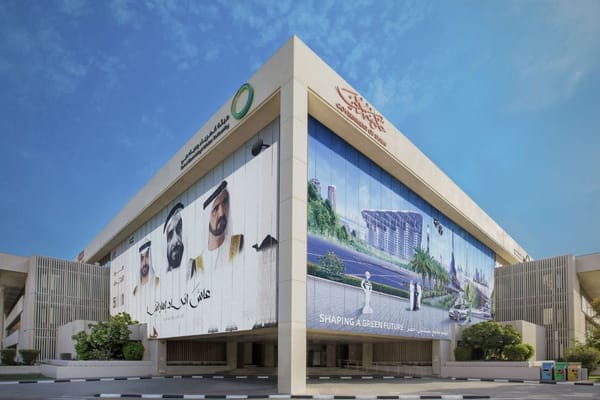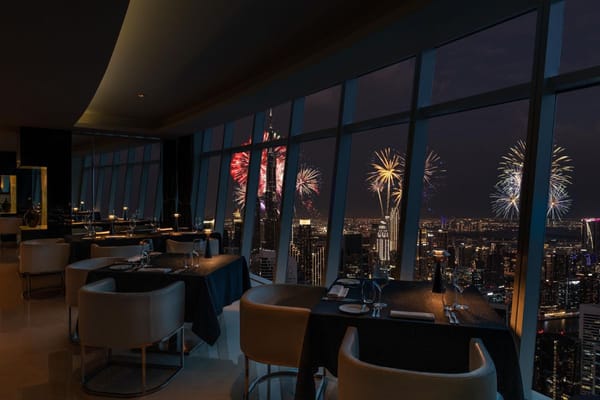On a lazy Wednesday morning, just as I was getting ready for work, my colleague and HiDubai's very talented videographer Habiba called, all urgency and excitement, about a last-minute shoot at an antique store in Al Quoz. I thought, “Why not? One less day in the icebox of an office!” So off I went to Cabinet of Curiosity. From the outside, it looked like any other quirky Goshi Warehouse shop, with its bright paint and embossed logo beckoning you in. And in I went—only to find myself in a hidden world that felt like a slice of Ali Baba’s cave, filled with treasures and gilded furniture, making me forget I was still in Dubai.
The Store – A Sensory Experience
Mariia and Mutaib’s cove of history was an exercise in diversity. Every corner seemed to whisper a tale lost to time, with ornate tapestries hanging from the awnings and quirky trinkets peeking out of every nook. Tribal heritage hats sat proudly on a chinoiserie table, while oriental jewelry boxes adorned a wooden cabinet, its surface engraved in an Arabic poem. Atop the cabinet were hung impressionist portraits, framed next to contemporary landscape pieces.
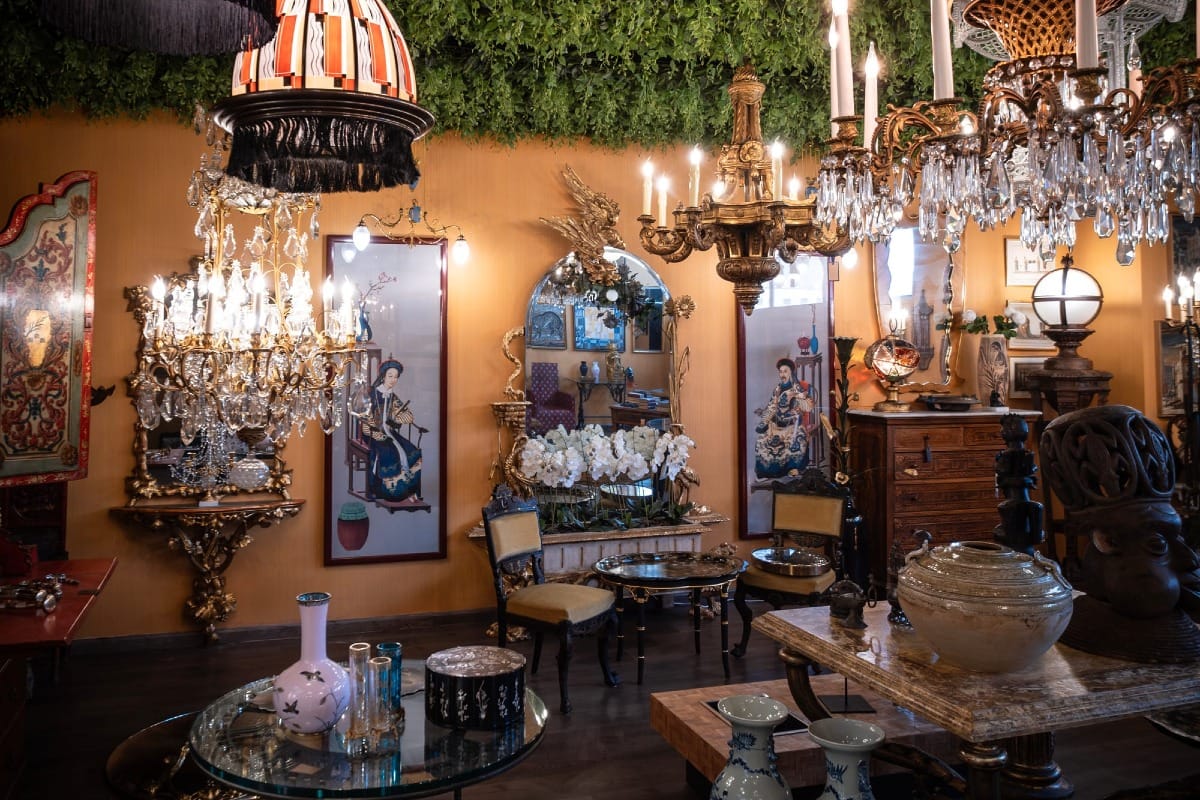
Standing in the middle of the fairytale-esque foyer was operations manager Mutaib Zahoor Mir, whose extensive background in business keeps this jewel box running smoothly. Shortly after, we were joined by lead curator and marketing director Mariia Volodchenko.
Mariia graduated with an architecture degree and pursued a Masters in the same. How did she find her way into the world of antiques, then? Mariia, who arrived in Dubai eight years ago, observed a sparse and uninspired art history scene in the city. Her mission was simple; to bring the beauty of antiques she had witnessed in her travels around the European continent to Dubai residents.
“Imagine yourself somewhere in Europe. Anywhere you go, you will find historical sites, museums and galleries, auction houses, flea markets - you name it,”
she commented.
This was her game plan: develop the nascent antique market in the city, cultivate a communal sense of appreciation for preserved history, and create awareness about the relevance of knowledge etched into tangible objects. What began as an experimental online store eventually transcended into a beautiful brick and mortar concept in the heart of Dubai.
Mutaib, who had an extensive career in home furnishings and retail, was roped into this world in a bid to spread awareness about antiques in Dubai’s luxury markets – he is particularly enthusiastic about the various exhibitions the store conducts and views them as a conduit to reach collectors around the world.
The Collection
This fascinating oasis of antiques draws inspiration from the 16th-century Wunderkammer, or "cabinet of curiosities," where collectors amassed unusual finds in literal cabinets that later grew into rooms—and eventually, the galleries and museums we know today. Although centuries separate Al Quoz from Renaissance Europe, the common thread of diversity links them—these collections were celebrated for their variety, just as they are at Cabinet of Curiosity.
A living museum, as Mutaib affectionately called it, the expansive store spanned three grand rooms across two floors, showcasing a myriad of pieces. We later learned that the collection on display was only the tip of the iceberg. Apparently, there are several dozen pieces awaiting research and verification in Cabinet of Curiosity’s storeroom and warehouse! I did try to bargain for the key to that secret room, but you only get so lucky.
Though the cabinets of curiosities from lore aren’t well-documented, this store recently received a set of exquisite entomology collectibles, featuring insect specimens inside meticulously crafted glass domes of French origin. If Mariia’s suspicions were to ring true, this entomology set might be from an ancient cabinet of curiosity!
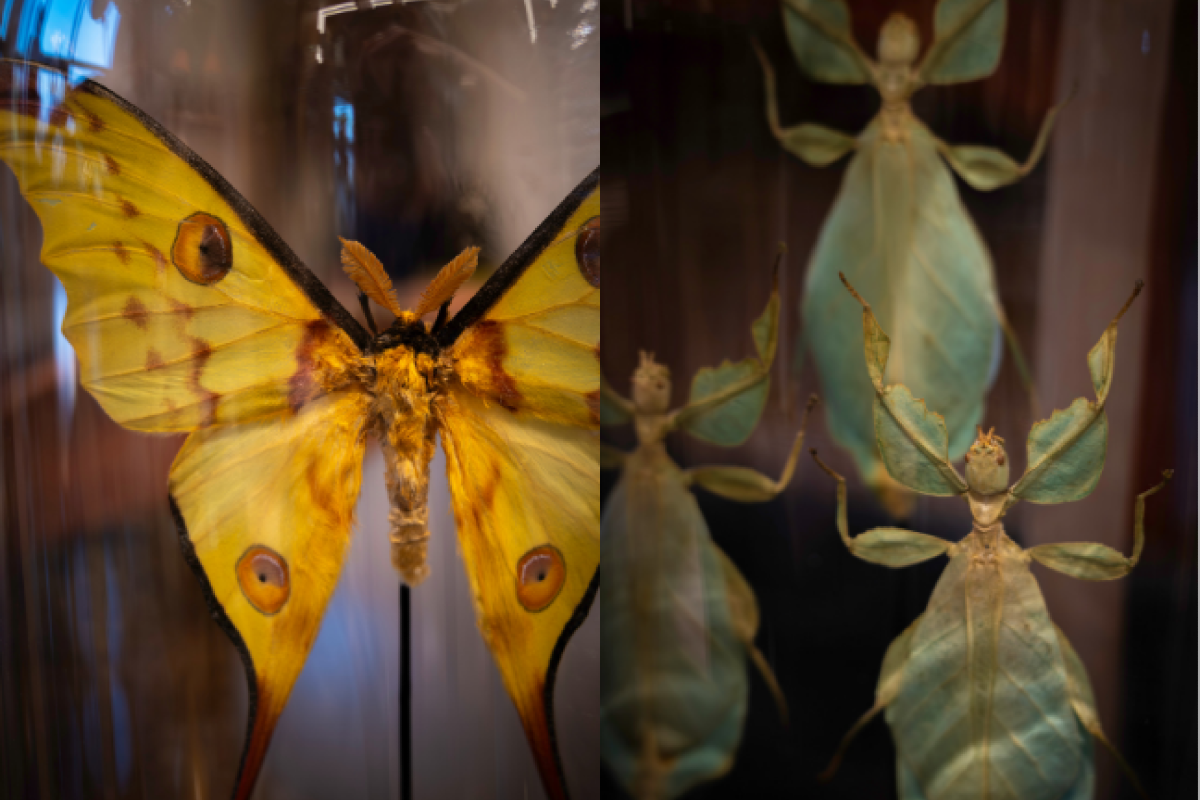
The Curation Process
At Cabinet of Curiosity, the story of every piece starts long before it finds its way onto the showroom floor. Their in-house purchasing team, an assembly of antique enthusiasts, frequent auction houses across Europe and markets scattered around the globe to handpick pieces, driven by an intent to endorse authenticity. Roughly 70-75% of the collection is sourced from Europe—places like Sweden, Portugal, and Belgium.
Not a single piece sees the light of Dubai’s sunny days without undergoing a thorough vetting process! Research here is no less than a treasure hunt for Mariia and team, who likened the process to a “deep dive into history”. The team also places great emphasis on restoring items with subtle and minimal changes in a bid to preserve the original concept of the creator.
Albeit his newfound love for antiques, Mutaib’s eye for operations never overlooked the research aspect. He added,
“Many of the pieces we showcase are signed, but even when they’re not, we can gather a wealth of information about the original artist just by examining the piece’s composition. In our research, it’s not only the item itself we’re studying; we delve into the artist’s life, history, and the era they lived in, as well as the unique vision or passion that drove them to create each work.”
To Display or to Store?
Although Mariia and Mutaib spent three years mastering the art of curation, they were staunch in their commitment to the idea that furniture must be used and art displayed. After all, what’s the point of all that beauty and history if nobody appreciates it?
"Some people collect antiques purely out of passion, while others see them as investments,”
Mutaib noted.
“It really depends on the person. True collectors are drawn to these pieces for the art and history they carry. Not everyone values antiques, and that’s okay. We’re here as guides to share the stories behind each piece, but antiques aren’t for everyone. It takes courage to bring something with real character into your home. Our clients are incredibly creative and expressive, choosing items that reflect their own style. We provide the details, and they choose what speaks to them."
Pointing to a brightly painted wooden cabinet, Mariia shared with a smile,
“That cabinet was made 200 years ago, it has served others for two centuries. If you buy it, it will serve you, your children, and your grandchildren for generations to come. Ultimately, these pieces are meant for long-term use, making them timeless heirlooms!”
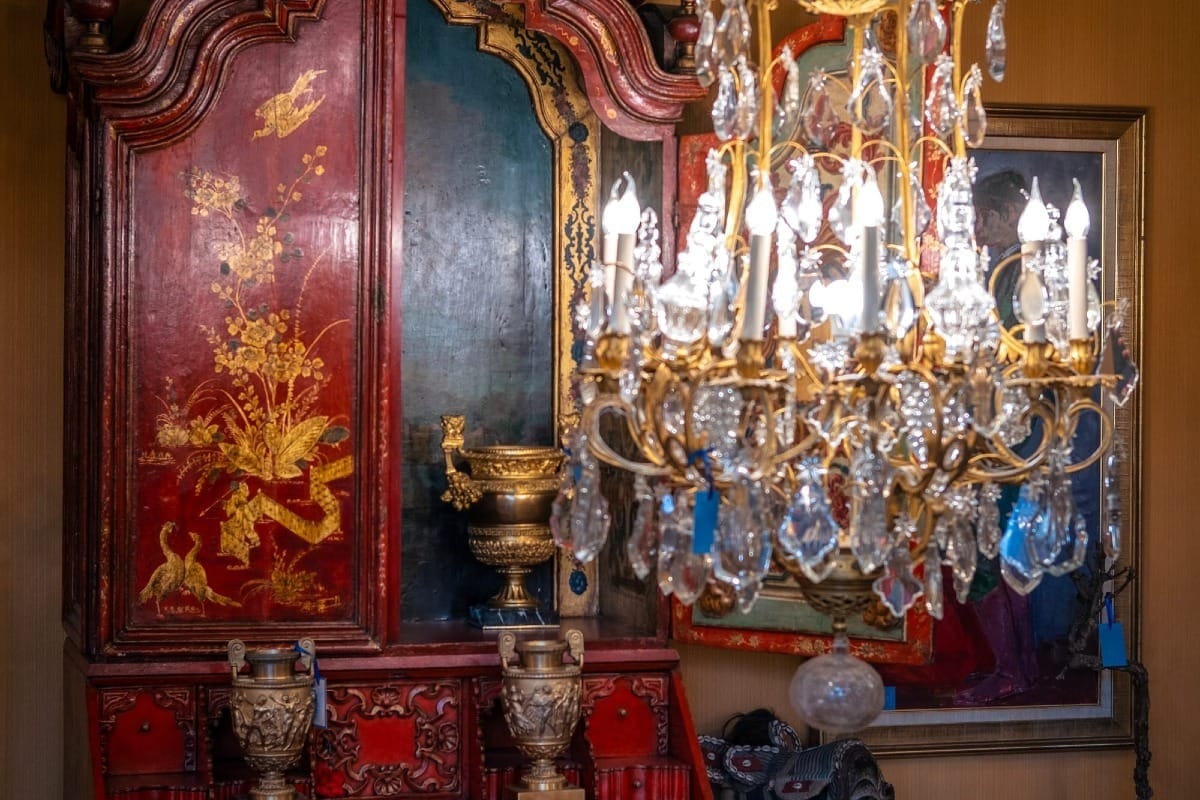
Age and Terminology
The oldest pieces I saw at Cabinet of Curiosity were from the 17th century. Curiously, I asked Mariia how items are classified into categories and here’s the expert opinion I received;
“Antique doesn't always mean a masterpiece—it simply refers to something that's over 100 years old. The definition of age depends on the industry. For example, in fashion and retail, something as young as 10 or 20 years can be considered vintage, like cameras, vinyl records, or posters. But in furniture, the process of creation is longer, and thus, the definition of "old" stretches further.”
At Cabinet of Curiosity, 60 to 70% of the collection consists of antiques, the rest mostly vintage items over 20 to 40 years old. Of course, the contemporary pieces—those from 2010 to 2012—bring a refreshing contrast to the store, merging the old with the new and bridging eras in a stunning display. Mariia’s reflections on historical terminology and the future echoed in my thoughts for days,
"Who knows what art historians will eventually call the era we're living in now? During the Renaissance, people didn’t know they were living in ‘the Renaissance’—that name only came later. It’s the same with our time."
Eclectic Pieces and Modern Homes
Not very long ago, Cabinet of Curiosity sold a set of Chinese ceremonial drums to a family. The drums were huge and fragile, with diameters of 1m and 1.5m respectively, and lined with leather upholstery. Mariia and Mutaib were flabbergasted, they couldn’t envision a use for such large pieces in a home and considered them decorative pieces. Or so they thought, until the creative customer amazed them with the art of interior styling.
"So, what the client did was buy a large glass top to place over it, using it as both a dining table and a way to protect the antique. This way, the antique stays preserved, and the client’s passion for it is kept alive while it serves a practical purpose. It’s an innovative and easy solution that blends both function and passion."
Marketing, Mariia, and the Magic of Cabinet of Curiosity
Dressed in a vintage dress and delicate jewelry she sourced for herself, Mariia reminisced about the influence being a curator had on her personal style and perspective. She felt that her approach to Cabinet of Curiosity was inspired by the words of a professor from decades past,
"One of our classes involved sketching and drawing portraits, and a piece of advice from the professor has stayed with me: ‘If you want people to fall in love with your art, you have to fall in love with it first. And to love your work, you must love your model.’ That wisdom has influenced my work at CoC as well. Every time I see our latest additions, I feel a spark—I fall in love with each piece. That love gives me the inspiration to be excited about the work I do. I hope to pass on this love to our clients and store visitors.”
As marketing director, Mariia’s carefully woven narrative for Cabinet of Curiosity is successfully compelling; she brought the brand to life through Instagram stories featuring artists and creators, enchanting social media feeds, and an official website that routinely lists new additions. However, this is not the heart of the store’s ethos; with antiques being a niche interest, mere promotion doesn’t achieve Mutaib and Mariia’s stated mission – disseminating product knowledge.
“You cannot enforce mid-century modern on someone who loves Baroque style. Antique collection cannot be mainstream”,
Mariia remarked.
Customers are encouraged to make the trip down to Al Quoz and experience the magic in person – as I wandered through the ranks of cabinets and chaises, it became clear to me that the store aimed to create a physical experience of adventure and wonder in a digital age where much of retail had shifted online. A rare discourse of history and art, and an opportunity to share surprising knowledge – what better way to step away from the hustle?
“Some pieces, I know, will stay with me, like the Flemish tapestry we recently sold. I remember how emotional I got when we sold the first edition of Arabian Nights’ Entertainments by Edward Lane. It’s the English translation of 1001 Nights in three volumes, and saying goodbye to that first edition was like parting with a treasure. It’s the stories behind each antique that make them feel so personal. But in the end, we’re glad they’re finding new homes here in the UAE, where they’ll be appreciated."
With ambitions of building her own private collection some day, the dresses, jewelry and other items are only the beginning for Mariia!
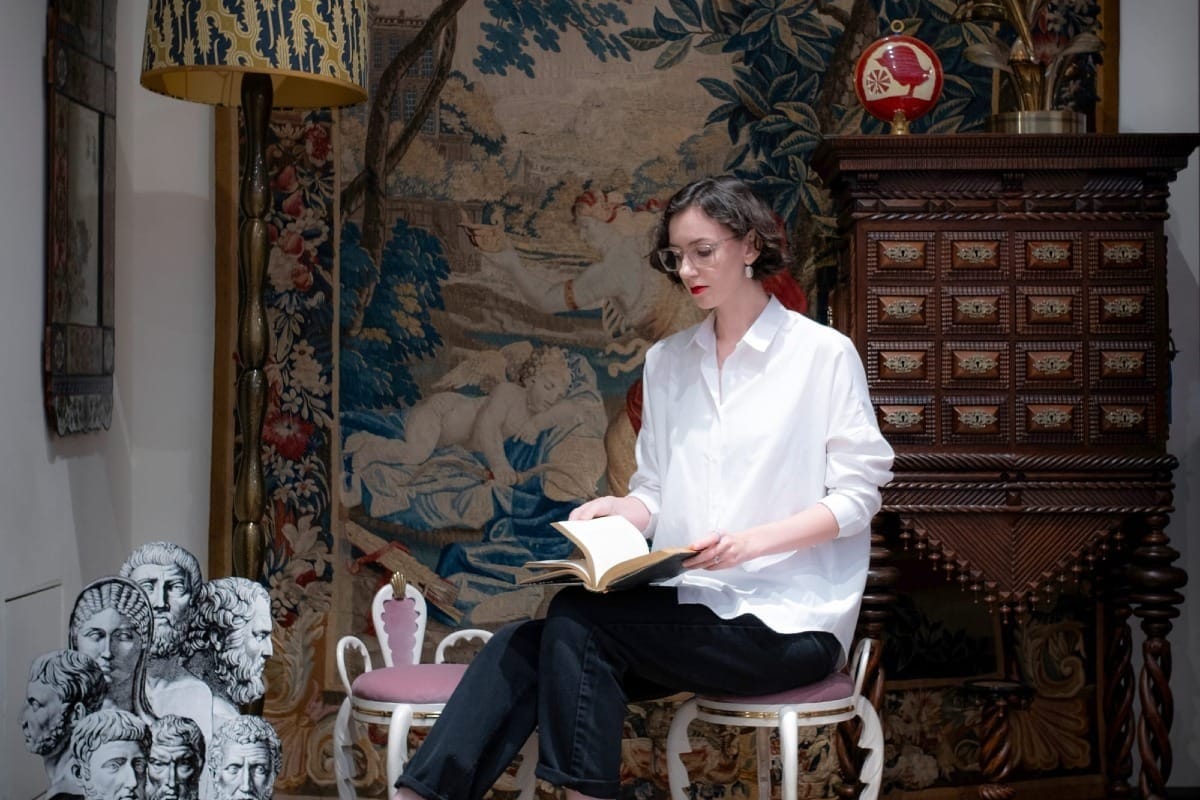
The Operations – Mutaib's Expertise
You might wonder, what is the difference between a museum and this antique store, then? Not much! The only difference between collections like Cabinet of Curiosity and traditional museums is their commercial operation and business goals.
The store offers home viewing for a limited number of pieces, usually smaller items like vases, table lamps, and trinkets. While larger items are not available for home viewing due to operational difficulties, 90% of their home viewing converts to successful sales!
Activities at Cabinet of Curiosity have always ebbed and flowed to the rhythms of the city’s various festivals and seasons. During the earlier months, you will find Mutaib focused on business events, while the later months witness a shift in focus to summer events and Ramadan, keeping things fresh and aligned with the pulse of the city.
Inspiration for monthly features and exhibitions usually stems from these festivals or Mariia’s research. Cabinet of Curiosity's Instagram page acts as a window into their world, highlighting select themes, including a recent exhibition that featured the works of Alistair Grant, a British artist and professor.
Mutaib weighed in on the operational challenges of running this unique business;
"Running a business means facing constant challenges—it’s not easy. For us, sourcing products from different parts of the world is just the beginning. We handle logistics, warehouse management, and in-depth research on each item, from who created it to its history. With a range of offerings, including furniture, books, art, antiques, and vintage pieces, every step is demanding. Thankfully, our dedicated procurement team sources globally, our logistics team manages overseas shipping and customs, and we’re successfully navigating these complexities."
Beyond its local collectors, the store has welcomed tourists looking to bag a unique item on their Dubai stay! Listed on 1stDibs, Cabinet of Curiosity also attracts an international clientele under Mutaib’s watchful sales op. The store remains lively all year with a variety of exhibitions, pop-ups, and collaborations across the UAE, and actively partakes in the artistic development of Al Quoz Industrial Area.
An Invite to the People of Dubai
As she glanced back at her years in Dubai, Mariia was overcome by a sense of fulfilment, having witnessed remarkable growth in the local art scene and a rise in the number of art galleries and museums around the country. She ended our tete-a-tete with a convincing invitation to the city at large,
“I’ll let you in on a little secret. Once you step into the world of antiques, you will fall in love with it and there will be no going back to the ordinary. We welcome you to Cabinet of Curiosity, where you will be guided through a journey of discoveries, the key to which is a sense of curiosity!"
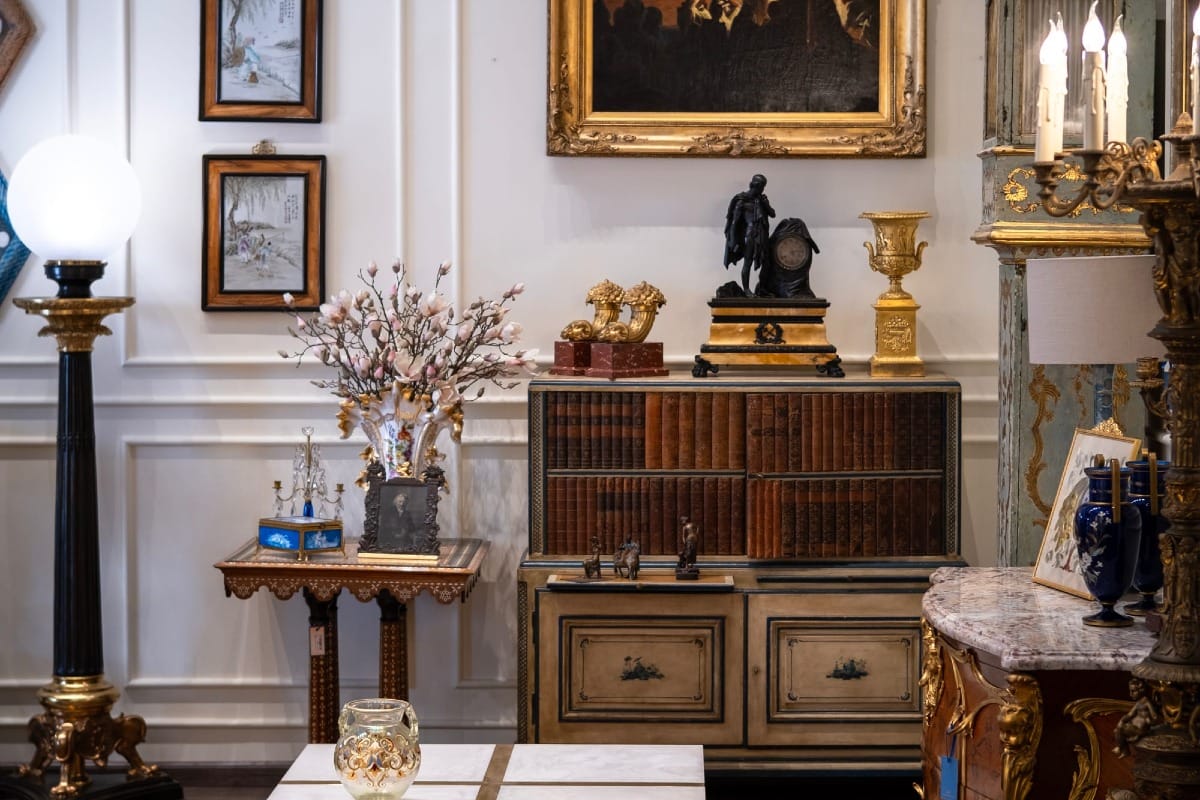
At the end of our little excursion, Habiba and I walked away with a revelation; History cycles itself through everyday objects. Many of the artifacts we discovered in the store were museum-grade items that had found their way into this corner of the world, fated to go to private collections. Often, private collections become museum exhibits through donations or sales, and museums, unable to keep everything, put pieces back on the auction block. It’s here that people like Mariia and Mutaib step in, preserving these treasures and breathing new life into them through the stories they share, giving them a second chapter in their living museum.
Watch the interview:
Also Read:
